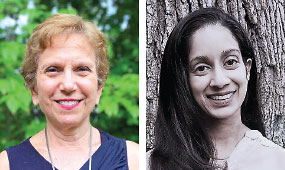Psychotherapy Caucus Creates Program to Increase Use of Psychotherapy
After APA’s 2020 Annual Meeting, the APA Psychotherapy Caucus—which now has more than 1,200 members—established the Training Advancement Initiative to advance our mission to bolster psychotherapy by psychiatrists. This initiative consists of numerous workgroups focusing on different aspects of psychotherapy training. One of the groups—the Mentoring Workgroup—is proud to provide an overview of this initiative.
The Mentoring Workgroup consists of early career psychiatrists (ECPs), a PGY-1 psychiatry resident, and several experienced midcareer and “senior” psychiatrists, all of whom are passionate about psychotherapy and consider it fundamental to the practice of psychiatry. We suspected that many trainees and ECPs do not have ready access to psychiatrists who are practicing psychotherapy and could serve as role models or mentors. We agreed that providing a vehicle to introduce well-qualified mentors and mentees could pave the way for bridging this significant gap in psychiatric training and education.
Our first task was to ascertain what prospective mentors and mentees are seeking, so we distributed a needs assessment survey in January 2021 to the Psychotherapy and ECP caucuses and several residency programs. The survey subsequently reached additional psychiatrists through social media networking sites.
More than 180 psychiatrists responded and conveyed tremendous desire for mentoring opportunities, particularly regarding psychodynamic treatment. However, consistent with the caucus’s “Big Tent” approach, there was representation from a range of theoretical frameworks, preferred patient populations, and clinical settings. Our respondents were interested in both individual and group mentorship, and perhaps because of the mid-pandemic timing of our survey, the location of mentors was a relatively unimportant factor.
Based on our survey data, we decided to offer a virtual forum for introducing potential mentors (seasoned clinicians) and mentees interested in further developing psychotherapy as part of their clinical practice. Those who were interested in pairing off could then make their own arrangements. These forums would also be educational by furnishing current and future psychiatrists with information about the “nuts and bolts” challenges and rewards of incorporating psychotherapy in patient care. We also hoped to pique psychiatrists’ interest in psychotherapy by empowering them to apply psychotherapy principles and skills when treating patients.
Beginning last June, we started hosting a series of virtual “Meet and Greet” sessions featuring knowledgeable clinicians who informally discuss practice development challenges and other issues raised by survey respondents. Participants join small groups that meet in breakout rooms to promote personal interaction, facilitated by self-identified mentors. The discussions are then summarized for the larger group when the groups reconvene to conclude the session. In addition, we distribute an abbreviated topic-related bibliography to participants and offer them the option of sharing their contact information with the group.
To date, we have held three 90-minute “Meet and Greets.” The first session featured one of the authors of this article—Dr. Goldman—and Christine Adams, M.D., who discussed starting and maintaining a private psychotherapy practice. The second featured Betty Herr, M.D., and Victoria Huang, M.D., who talked about the feasibility and benefits of accepting insurance in a psychotherapy practice. The third session was led by Margaret Tuttle, M.D., Behdad Bozorgnia, M.D., and Bernard Beitman, M.D., who focused on how to provide integrated psychiatric treatment, that is, medication management combined with psychotherapy.
Each of these sessions, which included personal accounts from psychiatrists who regularly work with patients using psychotherapy and interactions between psychiatrists at various career stages from around the world, has been well received as indicated by informal attendee feedback and post-session surveys. It is clear that the sessions have whet the appetite of ECPs and trainees to do clinical work in which a deeper understanding of patients’ struggles could yield tremendous personal and professional satisfaction. They have also helped alleviate attendees’ concerns about whether it is financially and logistically manageable for them to provide psychotherapy because the speakers shared their “tried and true” practice strategies.
Future sessions will highlight psychiatrists who are conducting psychotherapy in different treatment settings, such as inpatient units, partial hospital programs, outpatient clinics, general hospitals, primary care practices, or public sector facilities, as well as additional topics generated by participants’ expressed needs.
Members of APA’s Caucus on Psychotherapy firmly believe we can mitigate a substantial missing link in psychiatrists’ professional growth by facilitating contact between experienced and developing psychiatrist-psychotherapists. Our hope is that by encouraging psychiatrists to embrace comprehensive treatment, either psychotherapy alone or combined treatment including psychotherapy, we will prepare the next generation of psychiatrists to use the full extent of their training and qualifications and thereby secure our profession’s future. We welcome your involvement and would love to see you at our next “Meet and Greet” session!
If you are interested in joining the Caucus on Psychotherapy, go to APA’s website here. Then keep your eyes open for information about future “Meet and Greet” sessions in the caucus’s enewsletter, Psychotherapy on the Move. You can also ask to be invited to the sessions by contacting us at [email protected]. We look forward to getting to know you! ■




